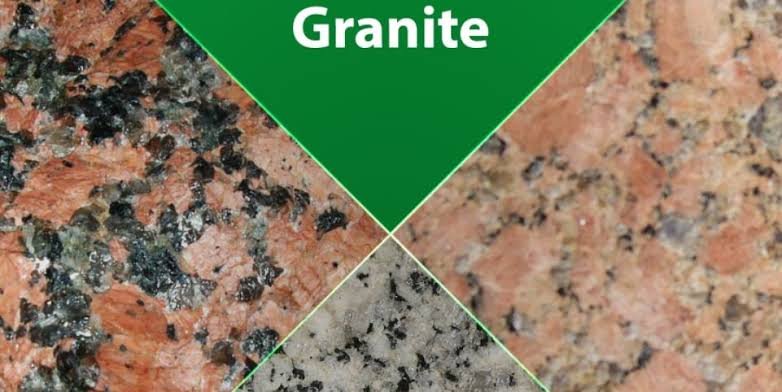How granite mining is exposing Kaduna community to health, economic challenges
How granite mining is exposing Kaduna community to health, economic challenges
By Mustapha Adamu Yauri, News Agency of Nigeria (NAN)
Malam Ahmed Abubakar, like most residents of the Farakwai Community in Igabi Local Government Area (LGA), Kaduna State, received the granite mining companies in the community with euphoria.
Abubakar, popularly known as Babangida, said the people’s expectations were that the companies would augment the government’s effort in providing infrastructure and strengthen their economic growth, enhance job creation and environmental conservation.
He and others even formed a team which sensitised the community on the benefits associated with the activities of the mining companies in the area.
However, to their chagrin, the mining companies have not met these expectations; rather, they have brought misery, sickness and economic woes to the communities.
Findings by the News Agency of Nigeria (NAN) revealed that Farakwai community hosts Zeberced Quarry and Sun Shine Quarry. The two companies mine granite, known in Nigeria as gravel/chippings.
Investigations showed that the operations are carried out in unprofessional manner.
The mining activities pose public serious health risk, worsen poverty and hinder agriculture production due to the non-implementation and abuse of provisions of the Mining Act.
Abubakar said the dust from the quarry site, noise from blasts heavy duty trucks in the area have been one of the major public health challenges in the community.
“We have women who developed respiratory related infections allegedly as a result of constant inhaling the dust from the quarry activities and movement of heavy trucks to the sites.”
“I lost my first wife as result of complications from Asthma due to a challenge. Beside my wife, I know Malam Audu Mai-kaji, my neighbor, among other people who developed a complicated respiratory disease,” he said.
He also said tremor and noise from the sites also jeopardise the health condition of the elderly and aged in the area.
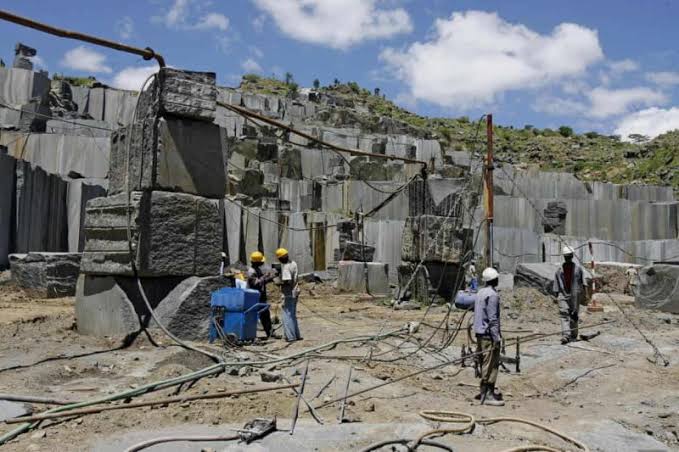
Corroborating, Malam Abdulkadir Mohammed, a farmer and a resident of Tudun Kaya area in Farakwai, blamed his asthmatic condition on persistent exposure to the dust emanating from the quarry activities.
He explained that his resides some few meters away from one of the quarry companies, alleging that constant inhaling of the dust from the quarry activities jeopardised his health, with multiplier effects on his family income.
“As a community, there is nothing we can do but to accept it as our own destiny from God and there is no support coming to me from the two quarry companies as I don’t have any link to them.”
“The companies cannot stop their activities because of people like me who are having this kind of respiratory challenges, hence my decision to resort to self-medication by using traditional medicine,’’ he said.
Assessing healthcare is even more challenging.
According to Mohammed, the security situation has forced the medical personnel at the Primary Health Centres (PHCs) to provide only skeletal services in the area, making it difficult for the affected communities to access health care services.
“Accessing health services through patent medicine vendors forced most households in the area to lose their little earnings from agriculture while others reverted to accessing healthcare services from traditional medicine,’’ he said.
Malam Ibrahim Abdullahi, another resident who was seen repairing cracks said the cracks were caused by tremor from rock blasting, adding that he was not compensated for the damage to his property.
He, however, said he was once paid N1, 500 by Sunshine Quarry Company to repair cracks on his property before the company stopped the gesture.
“You can see that most of the houses in Farakwai village have cracks as result of the tremor from blasts,’’ he said.
Abdullahi also said that one of the two companies supplies gravels for the reconstruction of Kaduna-Zaria-Kano Expressway as well as for some road construction projects within Kaduna and Zaria axis.
According to him, at the peak of the supply for Kaduna-Kano expressway reconstruction, between 300 to 400 trucks would take gravels from the companies.
Malam Shuaibu Inuwa, a resident, said beside health challenges, the mining activity in the area negatively affects farming, reduce crops yield and reduce their earning from agriculture, a major economic activity in the area.
He said he had farmland where he initially produce maize near one of the quarry sites but the yield has drastically reduced from fifteen 100kg bags to less than seven bags over time.
Inuwa said he was forced to change from maize to onion farming and later to soya bean farming as he sought crops that would withstand the pollution from granites.
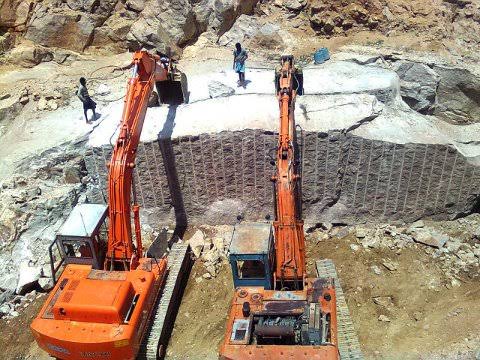
Dr Iliyasu Mohammed, Department of Crop Protection, Faculty of Agriculture, Ahmadu Bello University (ABU), Zaria confirmed that dust from quarry sites affects plants growth and yields.
“Plants tap their nutrients from the soil, they tap chlorophyll and oxygen from sunlight to generate their nutrients; the dust from the sites contains some chemical elements which are toxic to the plants.
“ These toxic chemicals go airborne and contaminate soil and obstruct plants; and dust also settles on the leaves of the plants and truncates the photosynthesis cycle, delays plants development and yield.
He also said that some chemicals may be ingested through the food chain; adding that this has lots of implication for public health.
In spite of the complaints, Alhaji Hudu Ibrahim, Village Head of Tudun Kaya in Farakwai, commended Sunshine Quarry for constructing two mosques, a block of classroom and regular payments of electricity bills for the village.
The village head said the company has also supported the community with N500, 000 for the establishment of a WAEC examination centre in the area.
He said Tudun Kaya Area of Farakwai and Sun Shine Quarry signed a Community Development Agreement while Zeberced Quarry signed a similar agreement with Zagina area of Farakwai.
The agreement which expired in 2023 entailed the construction of mosques, blocks of classroom, boreholes and drainages for Tudun Kaya Area.
He said unfortunately, the agreement was not fully implemented as the construction of boreholes and drainages within the area were not done.
Ibrahim said in 2022 there was a case of falling rocks that damaged many farms near the quarry and the company paid affected farmers over one million naira as compensation for the damage which was shared among them.
Malam Zubairu Sani, a farmer and resident of Farakwai said farmers affected by the incident received between N100, 000 and N400, 000, in compensation depending on the size of the farm and the level of damage.
Dr Muhammadu Ali, Mineral Engineering Specialist, Department of Mineral and Petroleum Resources Engineering, Kaduna Polytechnic, said granite is composed of over 70 per cent silica, among other elements.
He added that the dust generated from the blasting has silicon also known as silica which is one of the most dangerous substances to inhale.
“By the time this substance accumulates in the lungs, it damages them after a series of coughing and vomiting blood,” Ali observed.
He said Nigeria’s mining laws stipulate that communities around mining sites should be resettled or the blasting should be controlled in such a manner that the dust will not be airborne.
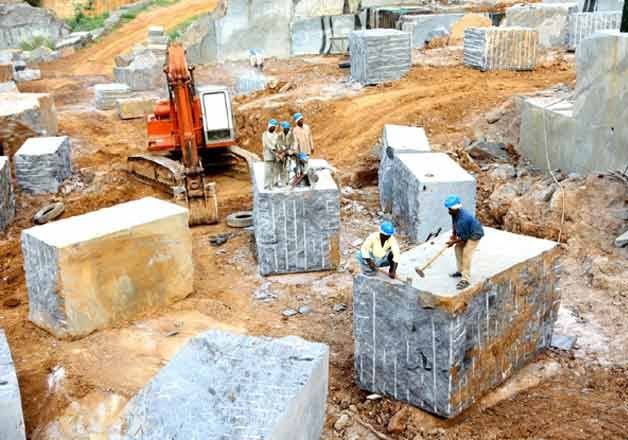
He said the easiest way of controlling this dust was sprinkling of water while the crushing section should be covered in such a way that dust from the crushing would be absorbed into a special collection baggage, among other measures.
Similarly, Dr Jiya Eunice, Consultant Pulmonologist, National Tuberculosis, Leprosy and Training Centre, Zaria said dust from the quarry sites gets into the respiratory system and causes health hazard to victims.
Eunice who is also the Chairman Medical Advisory Committee (CMAC) of the Centre said the manifestation of the disease depends on the degree of the exposure.
“The chronic silicosis, which may be life threatening, could manifest long after between 10 years to 30 years; that is after the company might have finished its operations.
“Such patients may be complaining of dry cough, finding it difficult to breathe, it may also reach a point where the respiratory system fails, such patients subsequently be on oxygen.
“Sometimes it may develop into lung cancer where a chance of survival was very slim’’, she said.
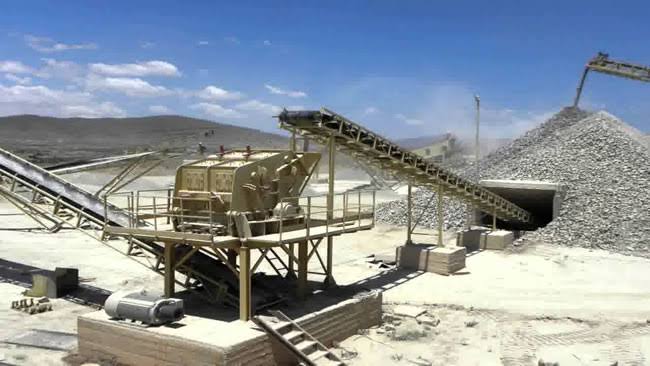
Mr Mohammed Sani, Section 91 Engineer of Sunshine Quarry Farakwai said the company was doing its best to curtail the challenges at the host communities.
Regarding cracking of walls, he said the company listens to the individuals affected in addition to routine fact-finding visits to the host community.
He explained that the company has stopped the monetary compensation to the people whose houses cracked but now directly repairs such cracks.
Sani said the documentary evidence for payment of compensation, and other audio visuals for the direct repairs of cracks were submitted to the Federal Mines Environmental Officer, Kaduna office.
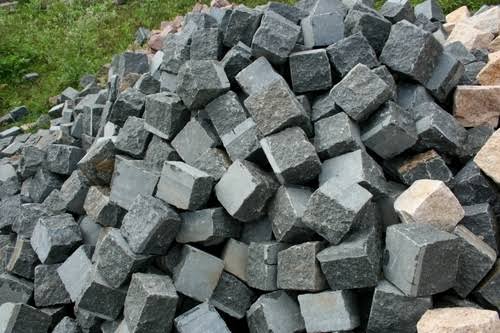
On the health hazard associated with the dust from the quarry site, Sani said there was no report of health hazard to the company from the community.
He said the hazard of silicosis to the community was not considered in the community development agreement and corporate social responsibilities of the company.
He, however, said it could be considered when the firm and the communities review the agreement.
Mr Isiyaku Ibrahim, Assistant Director at Federal Mines Environmental Officer, Kaduna State, denied the allegations by the community against the companies.
The Federal Mines Environmental Officer said Section 119 of the Nigerian Mines and Minerals Act 2007 provides for the Environmental Impact Assessment (EIA) and Environmental Protection and Rehabilitation Programme (EPRP).
While responding to the public health threat of silicosis to the host communities, Ibrahim said there was no river around the area as such members of the community could contract the disease.
“Though the dust from the two sites contains silicon, there is no water body or stream in the area; as such, once it rains the dust would wash away from the community.
“So, I don’t see how they will contract silicosis as a result of the quarry activities’’, he said.
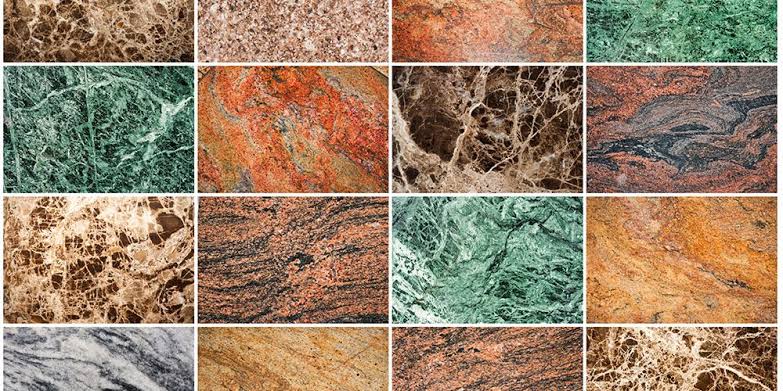
Ibrahim said the Department ensured the companies conduct the EIA and spelled out the EPRP such as the environmental pollution.
“We also look at S. 116 of the Act which provides for the Community Development Agreement (CDA) and ensure that companies sit with communities and write the CDA for five years and ensure its implementation.
Prof Shehu Yaro, Department of Metallurgy and Material Engineering, Faculty of Engineering, ABU, Zaria contradicts the Federal Mines Environmental Officer and insists that silicosis is contracted through inhaling contaminated air, not through a river as the official claimed.
Yaro said the effect of blasting on the houses in the community is visible.
He reiterated the need for better implementation of the Mining Act which has provided adequate protection to both investors and host communities. (NANFeatures)
**If used please credit the writer and News Agency of Nigeria.
Published By
Has also recently published
 Economy/BusinessApril 17, 2025PEBEC boss restates readiness to work with MDAs
Economy/BusinessApril 17, 2025PEBEC boss restates readiness to work with MDAs EducationMarch 28, 2025TETFund partners agencies to boost AI studies in higher institutions
EducationMarch 28, 2025TETFund partners agencies to boost AI studies in higher institutions Economy/BusinessFebruary 27, 2025National Housing Fund collection hits N103bn in 2024 – FMBN
Economy/BusinessFebruary 27, 2025National Housing Fund collection hits N103bn in 2024 – FMBN Oil & GasFebruary 27, 2025OPEC Chief tasks Africa to unlock 120bn barrels of oil reserves
Oil & GasFebruary 27, 2025OPEC Chief tasks Africa to unlock 120bn barrels of oil reserves



